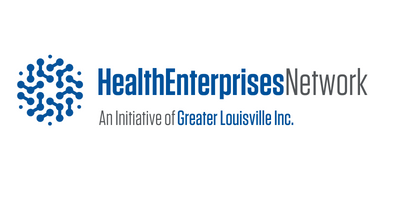American Heart Association presents the Mission: Lifeline award for proven dedication to best practices in lifesaving care of heart attack patients
LOUISVILLE, Ky. (July 20, 2022) – For a third consecutive year, Norton Audubon Hospital has received the American Heart Association’s Mission: Lifeline STEMI Receiving Center Gold Plus recognition for its commitment to offering rapid, research-based care to people experiencing a specific type of heart attack known as ST elevation myocardial infarction (STEMI). This type of heart attack is caused by a sudden, complete blockage of blood flow to the heart.
The award recognizes hospitals for consistently providing the highest level of heart attack care with the fastest door-to-balloon times and door-to-door-to-balloon times when receiving a transferred patient. These are measured against national benchmarks for the time it takes to restore blood flow to the heart.
This is the fifth year in a row Norton Audubon Hospital has received the Mission: Lifeline distinction and the third consecutive year to receive Gold Plus status. As a STEMI Receiving Center, Norton Audubon Hospital receives heart attack patients for treatment from other health care facilities that do not have lifesaving treatment capabilities.
To prevent death, it’s critical that blood flow is restored as quickly as possible, either by mechanically opening the blocked vessel or by providing clot-busting medication. With every minute that passes, damage is caused to the heart.
“I am extremely proud of the teams within Norton Audubon Hospital who provide care to heart attack patients,” said Randy Hamilton, chief administrative officer, Norton Audubon Hospital. “Each team works together to provide great care for a patient who is at their greatest moment of need, starting from the emergency department, diagnostic imaging, catheterization lab, and so many others who have an impact on that patient’s care. It really is remarkable to see these outstanding caregivers synchronize their treatment approach.”
Norton Audubon Hospital also is an American College of Cardiology HeartCARE Center: National Distinction of Excellence, and was listed in the U.S. News & World Report’s 2021-22 “Best Hospitals” list. Norton Audubon is the only hospital in Louisville to receive this distinction and one of only three in Kentucky from U.S. News & World Report.
“Being recognized by the American Heart Association with the Mission: Lifeline award and as a HeartCARE Center is a testament to the teamwork that takes place across the spectrum of care a patient receives,” said Joseph A. Lash, M.D., cardiologist and executive medical director of Norton Heart & Vascular Institute. “There is an intense amount of work going on behind the scenes to prepare for and receive that patient who is fighting for their life. Receiving these accolades is a reflection of the hard work and commitment to constant quality improvement from a very special group of dedicated physicians, nurses and staff within Norton Heart & Vascular Institute.”
Mission: Lifeline is a national community-based initiative improving systems of care for patients experiencing STEMI, non-ST elevation myocardial infarction (NSTEMI), stroke and out-of-hospital cardiac arrest. The program focuses on streamlining processes to speed the delivery of proper treatment for time sensitive neuro-cardiovascular emergencies.
Recognition as a Mission: Lifeline STEMI Receiving Center is designed to showcase hospitals that provide 24/7 support for STEMI. These important facilities coordinate with a network of referring hospitals and emergency medical services to provide guideline-directed STEMI and NSTEMI care. Every year, Norton Audubon Hospital provides care to 170 patients experiencing STEMI.
The goal of receiving centers is to reduce system barriers to prompt treatment for heart attacks, beginning with the 911 call, to EMS transport and continuing through hospital treatment and discharge. The initiative provides tools, training and other resources to support heart attack care, following protocols from the most recent evidence-based treatment guidelines.
###

Recent Comments